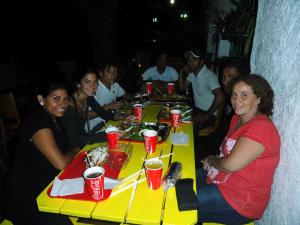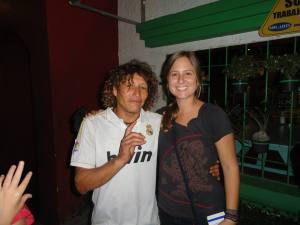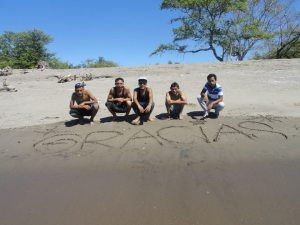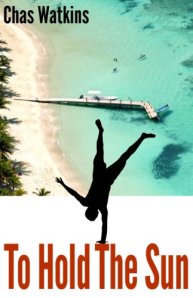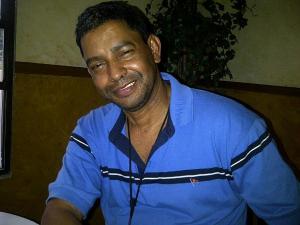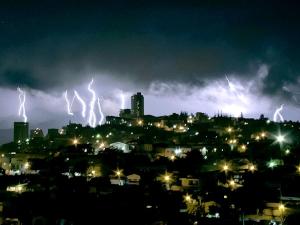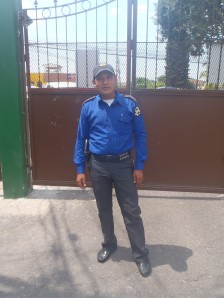Hi all
In the past month, Casa Domingo has been competing in a competition to go to Costa Rica and win a possible $25,000, which is very much needed after the organisation lost it’s funding last year. It’s with Project G, which I published a few weeks back, but it is fantastic opportunity to keep this project going and support this meta group, which is in desperate need of your assistance. It is currently in 6th place, which a few more days for voting. It needs to be in the top four. So please, please vote. http://www.thisisyourplanet.com/ideas/community/281.
I have written about how beautiful this project is, how dynamic it is and it’s hugely important role in the reintegration of street youths to society, which they were rejected from. It’s fantastic to see these guys, having been abused and gone down wayward tracks, to get back on board and strive to make a success of their lives, with wonderful results. You can see their determination and their willingness to do what it takes to change their lives around. This is well Casa Domingo comes in. They motivate the youths, help find scholarships, work or accommodation, teach them interview techniques, life-skills, cooking, re-educate them, psychological assistance – my gosh, the list really does go on and on.
I have not seen an organisation like this that fully integrates them, giving them infinite opportunities to return if they derail. The staff are fantastic, always there for them, chasing them up, making sure they remain on a disciplined line to “exito”. They remain in contact with youths long after the youths have reached their goals, inviting them on day trips so they can consult younger youths who are going through what they did. The transition from despair to success takes a lot of balls, passion and hard-work, so it’s full credit to this organisation who continue regardless, especially when there is only one or two staff at any one time.
I am now going to include a couple of profiles of the youths, after I did interviews about six months ago. I have changed their names for their own security. I suppose it bodes in well with the interviews that I have done with other Hondurans as of late. Enjoy!
Name: Hector Varela
Age: 27
From: Yoro, Northern Honduras
Entered Casa Domingo: 2005. I have been in and out of various centers battling my addition to drugs
Past-times: Playing football, billiards, cards
Favorite soccer team: Olimpia (the most popular team in Tegucigalpa)
Life before Casa Domingo:
I’ve been living in the street since I was seven years old. My parents abused to be me badly. They used to beat me and say awful things to me. I left home, came to Tegucigalpa and started taking drugs a year later, when I was eight. Marijuana, Resistol, crack. I was sleeping anywhere, in buses, parks, going in and out of centers. But I was too addicted to the drugs and kept returning to the street. It was dangerous, gangs everywhere, people being abusive and doing things I would rather not say. For four years, I was running with a gang. I regret a lot of the things that I did. I thank God that it’s over.
Life in Casa Domingo:
It’s a relief. I’m relaxed here, more tranquil. I have a house, a bed, food, I have everything. I feel better now, about myself. I have self-esteem. Casa Domingo helps me every day. They have helped me find work. I’m working in construction. I’m building a house like Casa Domingo. I have money. It stops me thinking about drugs. I have also found God. I’ve stopped taking drugs I’ve changed so much. I’m happy.
Goals for the future:
To have a family, have a beautiful wife, and my own house.
Name: Leonardo Alfaro
Age: 25
From: Tegucigalpa
Entered Casa Domingo: 2005. I have been in and out of Casa Domingo a few times. I kept returning to the streets and other centers.
Past-times: Playing football, learning to read.
Favorite food: Fried chicken
Life before Casa Domingo:
When I lived at home, my dad used to beat me a lot and mistreat me. I would hang out on the streets with friends when I was a teenager. I wasn’t in college and I didn’t feel my life was going anywhere. I was seventeen when I started living on the streets, and then I was in and out of homes and other centers, then I was nineteen when I got more involved with drugs. Marijuana, Resistol and alcohol, mainly. I did it for the pain. I felt ashamed and drugs helped. I felt bad and missed my family a lot. I had no self-esteem, I could be volatile and I would do anything to get drugs. I saw friends die from drugs. I was suicidal too. I feel that I’ve wasted a lot of years.
Life in Casa Domingo:
I have everything here. A home, a bed, food, people who care for me and watch my back. It’s not like that on the streets. I feel safe and I feel my life is going somewhere. Casa Domingo helps me with everything, in all corners of my life. If I’m ill, I have someone who will take care of me. I entered Casa Domingo to quit drugs, change my life and be happy. That´s exactly what’s happened. They are helping me to read and write. The educators have patience, they’ve helped me step by step, little by little. I have learned to occupy mind, so I don’t think about drugs. I’ve learned how to cook, live independently and be a different person. There is no other center or organization that helps older people in the street. It’s like we don’t exist. I’ve never been in a home where they give you so much attention and support. Casa Domingo is a family. I am very grateful to Casa Domingo. I’m a better person.
Goals for the future:
I want to have a house and a family. I don’t mind what job I have, as long as I can support them and be successful.

